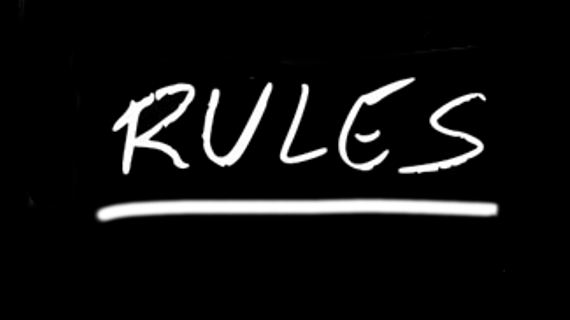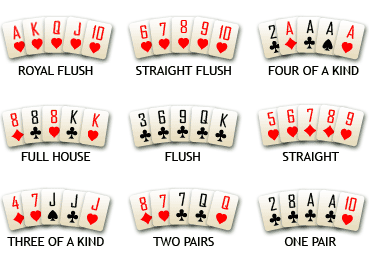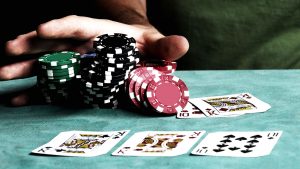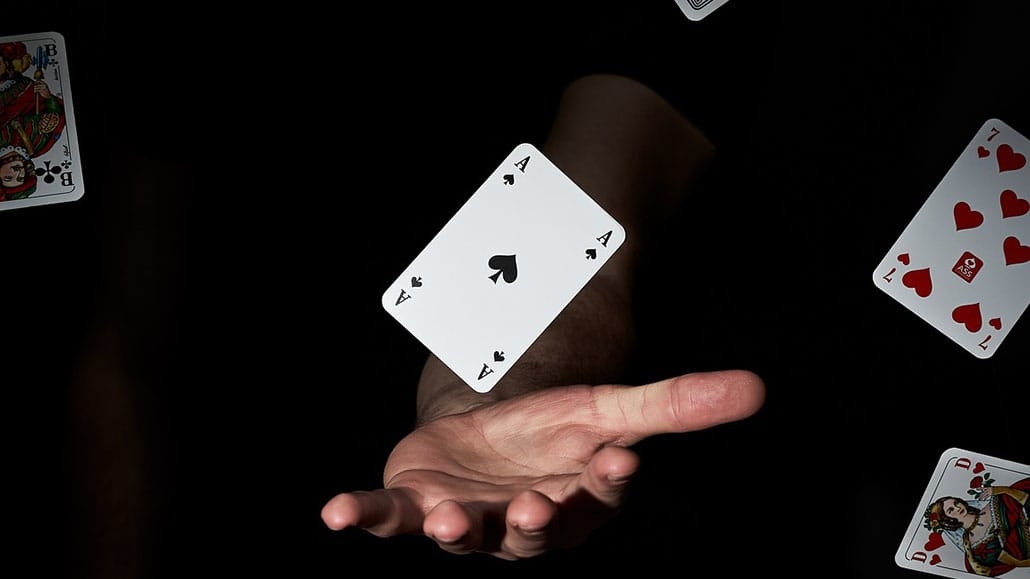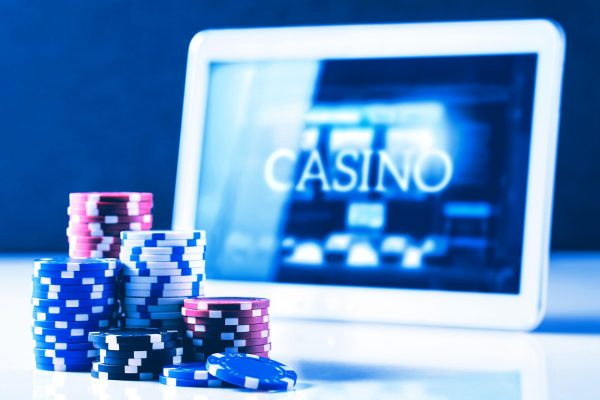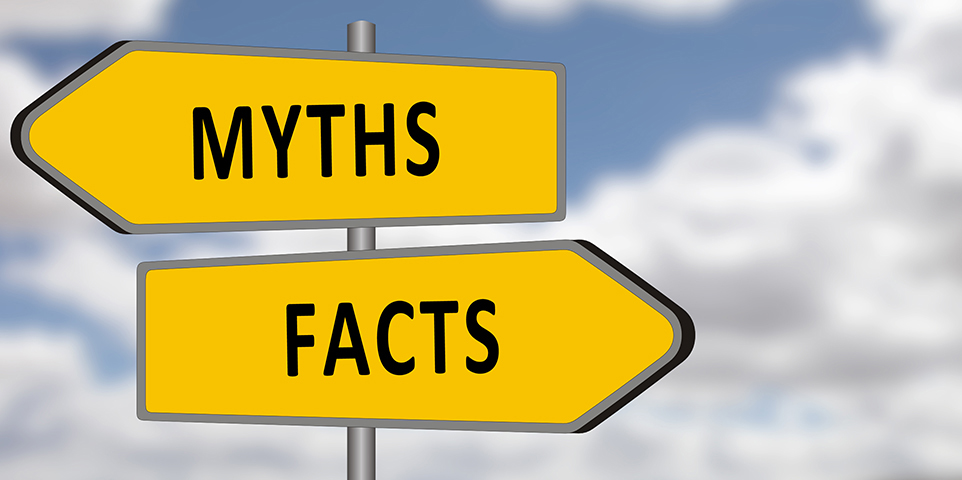Quick Guide to Online Poker
Why play online poker?
Very simple: it’s fun, exciting and it’s possible to make money with it on a structural basis; if you’re willing to learn. How much money? That depends on you. If you’re serious about it you can make a lot, even when you have nothing more to start with than one of many no deposit promotions. There are a number of members that never deposited money themselves; they started out with $50 from a no deposit promotion and increased this to more than $10.000 within a year.
To give you a taste of how it’s done:
The key is to start at the lowest limits, for instance at the $0.02/$0.04 No Limit tables. The maximum that you can sit with at such a table is $5, which means that with a $50 bankroll you have 10 ‘buy-ins’ (a buy-in is the maximum amount you can bring to the table). So you play the lowest limits, you read books about poker strategy, you make mistakes and learn from them, you post hands on the forum (a poker ‘ hand’ is jargon for the cards you are dealt in a round) to get commentary from other members. If you trippled your bankroll you try out one limit higher, until you beat that limit, etc. If you play on a regular basis this way you can build up a bankroll of over $1000 within a couple of months. Don’t start cashing out too soon, because you need that bankroll to climb the ladder to higher limits.
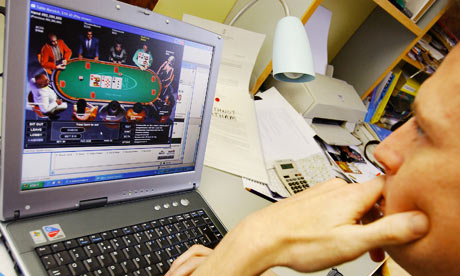 Advantages of Online Poker vs. ‘ Live Games’ (like a bar or somebody’s home)
Advantages of Online Poker vs. ‘ Live Games’ (like a bar or somebody’s home)
You can play far more hands. At an online table you can play around 60 ‘hands’ (rounds) an hour, at a live game you’re lucky to get 20. You can also play more tables at the same time in an online poker room. Some people play 10 or more tables at the same time, playing effectively more than 600 hands an hour. Why is this important? Because you can make (far more) money per hour.
There are always enough people to play against. Whether you like to play at 10 in the evening or 4 in the morning, there are always more than enough bad players online to shake down. So you’re dependent on no-one.
You can play at much lower limits online. This is important, because you don’t want to have to invest $1000 of your own money just to find out whether or not you can become a winning player. $50 won’t get you anywhere in a normal casino, but at an online poker room you can use it to build a serious bankroll.
Tracing weak players. There is all kinds of (legal) software that keeps score on your opponents. How many hands they play for instance, which is an indicator of their understanding of the game, or how often they raise. You can also make online notes about players. It’s even possible to put a player on a ‘buddy list’ at some poker rooms, so you can see whenever your favorite idiot is online. Is that mean? So what.
It’s safer online and there is much less fraud. Contrary to what you might think, fraud is virtually non-existent in online poker rooms. The anti-fraud software these companies have is so damn good (understandable, it’s their bread and butter) that a fraudulent player is better of at a ‘brick and mortar’ casino. Also, you don’t have to worry about some guy beating you up and taking your bankroll when you exit the casino.
How do I start playing online?
First you must choose a pokerroom. The best way to start is with one of ‘no deposit’ promotions. This way, you don’t have to deposit anything yourself, because you would be sponsored by someone instead. Why would somebody do that? Simple, because the poker room gives them commission for bringing new players. The better you play, the more they get, so it’s in their best interest to make you as good a player as possible. That means you profit, the poker room profits, and they profit.
The most important thing is to start small. We said it before, but we want you to make a lot of money and the worst thing you can do is take your $50 and sit at a table where you can bring $50. Poker is a skill game, but in the short term even the best player can (and will) get unlucky sometimes; and you are just starting out. So be wise, start small and give yourself a chance to learn the game.
Rules of the Game
How the game is played
No Limit Texas Hold’em (the most popular form of poker) is played at a table with 2 to 10 players. The game starts with every player getting to closed cards (hole cards) – cards that you of course can see- after which a betting round follows. In this first of four betting rounds the players decide whether or not they want to play.
You can:
Raise. This means you increase the stakes. Every player has to either match that amount (call) or throw away his hand (fold).
Call. You match the amount that is put in by the other player(s). At the very minimum, this is the so called ‘ big blind’, which is money that one of the players involuntarily puts in the pot. (more about that later)
Fold. This means you throw away your cards.
The money that all players put in the middle is called ‘the pot’. This is what players motivate to make high combinations and sometimes bluff.
After the first round of betting the dealer lays down 3 cards open on the table. This is called ‘the flop’. A second betting round follows, the same way as the first. The idea is that every time something new happens, a betting round follows. After the completion of this second betting round, the dealer lays down another card open on the table. This is called ‘the turn’. Follows the third betting round. Finally the dealer lays down the last open card. ‘The River’.
There are now 5 cards open on the table. These cards are community cards, which means everybody can use them. (you don’t grab them literary of course, just use them in your head). The idea is to make the highest possible combination of 5 cards, using your own (closed) cards and the 5 community cards. One of the reasons the game is so exciting is because there are only 2 cards you can’t see of your opponents, just as you only have 2 hidden cards. But they can make all the difference of course…
After this last community card (the river) is placed on the table, the last betting round follows. Finally, the players that still are in the game after matching each other’s bets, show their hand. The best combination wins the pot. If there is only one player left (because nobody wanted to match his bet) he takes the pot without having to show his hand. This is why players like to bluff (they might win the hand even if they don’t have the best hand).
Every hand, the dealer moves one place to the right (clockwise). This means everybody is the dealer just as often. The position of the dealer is marked with the so called ‘dealer button’ , which has the shape of a circle. Why is it important the position of the dealer moves? For several reasons.
First, the 2 players on the right of the dealer are called the small blind (closest to the dealer) and the Big Blind (next to the small blind). If you sit on a table with stakes $0.02/$0.04, it means that the small blind has to pay 2 cents and the big blind 4 cents. The big blind is always double the small blind. These blinds are an important concept, because they make sure there is always money in the pot. So if somebody raises and nobody calls, the raiser ‘picks up the blinds’.
Second, the Dealer position is the best position. Without going in to it to deeply, we will just say here that the dealer always acts last (except in the first round, when the blinds act last). This is a major advantage, because it means he only has to act after everybody else has already ‘said’ what they want to do. The close you are to the left side of the dealer (right side is blinds), the better your position is. Understanding position is one of the keys to play winning poker. More of this in our strategy articles.
Poker combinations
The game is about making the best combination out of 5 cards. This also means that if you and your oppponent use 5 cards to make a straight (see below), the other 2 cards don’t matter anymore. 5 cards max, that’s it. If both players have the exact same combination, they ‘split’ the pot, meaning they get an equal share.
Here are the different combinations:
Royal Straight Flush
A♠K♠Q♠J♠T♠
Straight Flush
T♣9♣8♣7♣6♣
Four of a Kind
J♣J♠J♥J♦A♦
Full House
A♣A♠A♦2♦2♣
Flush
9♣7♣5♣3♣2♣
Straight
Q♦J♣T♠9♥8♦
Three of a Kind
6♣6♥6♦A♣K♦
Two pair
A♣A♦J♥J♠9♦
Pair
9♦9♣K♦J♣4♠
Some points about combinations:
Bear in mind that for most combinations you do have to watch the value of the so called ‘kicker(s)’. For instance, if there are 4 nines and a six on the table, everybody will have at least a Four of a Kind nines. But, since we look at 5 cards in total, you will still loose from a guy that has an Ace in his hand if you only have a King. Your kicker –in this case the King- is lower than the kicker of your opponent.
Also important to note is that with a Full House we first look at the highest combination made up of the three cards. For instance, KKK22 beats QQQAA. Of course, when you think about it, its logical; after all, it’s harder to get three Kings than two Aces, so we look first at the part of the combination that’s hardest to make. Another thing is the Flush, where we always look at the highest card of that flush. So if there are three hearts on the board (the community cards) and you have A2 of hearts and your opponent has QK you win. No split pot here. Remember, it’s only a split pot if you and your opponent(s) have the EXACT same highest five card combination.
An Ace can be both the highest card as the lowest card, but never at the same time. This is only important considering the straight. For instance, you can make a straight like this: A-2-3-4-5. Or like this: T-J-Q-K-A. But never: Q-K-A-2-3.
A very strong combination in Texas Hold ‘m is a three of a kind when you hold two of the three cards in your hand. For instance, you hold 77 and the board is K-Q-7. The 77 in your hand is called a ‘pocket pair’ (short: ‘pp’). The reason why this is so strong is because it is very well disguised. It’s much easier to suspect somebody that bets the K-Q-7 board from having a King in his hand (in this case ‘Top Pair’) than 2 sevens. The usual name for for a three of a kind made with a pocket pair is ‘Set’. You’ll know it soon enough, because it’s a real money maker.
Just as a Set is a real money maker, Two Pair is often a money bleeder. The reason is that people often overplay it. (same for Top Pair). Sure, its a good combination, but don’t take it two far against more opponents if the board is threatening. You’ll find yourself with the second best hand more often than not. And contrary to most sports, in this kind of race there is no silver medal for finishing second.
Call, Bet, Raise, Fold, Check?
Let’s look at the the different options you have on each betting round.
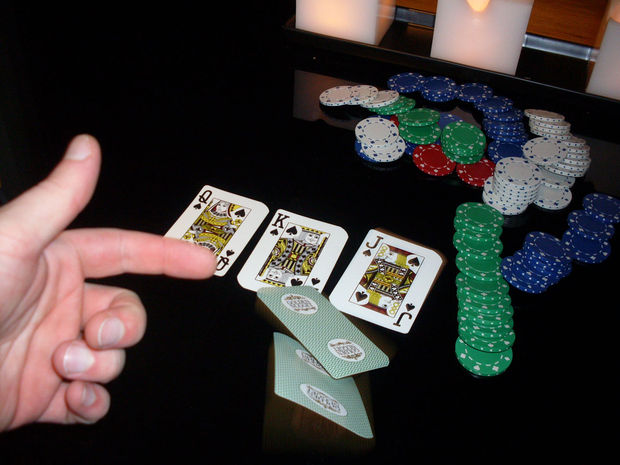 First, there is the Fold. Why first? Because it’s the most important of options. Ever heard of the phrase: ‘You can’t loose what you don’t put in the middle’? Well it’s true. The reason why many poker players are loosing players is because they don’t fold enough. The great thing about Texas Hold ‘m is that you can always fold for free in the beginning, except if you’re the small or big blind. That means 8 out of 10 times (at a full ring table) you can fold for free. Now this is more important in no limit hold ‘m than in Limit Hold ‘m, because the stakes can (and often will) go up quickly in no limit. It’s also the reason why no limit hold ‘m is usually much more profitable than limit hold ‘m, because a dumb player usually makes a smaller mistake entering a limit pot than if he enters a no limit pot with bad cards. This has to do with odds, which you can read more about in one of our previous articles. For now, just take our word for it. 🙂
First, there is the Fold. Why first? Because it’s the most important of options. Ever heard of the phrase: ‘You can’t loose what you don’t put in the middle’? Well it’s true. The reason why many poker players are loosing players is because they don’t fold enough. The great thing about Texas Hold ‘m is that you can always fold for free in the beginning, except if you’re the small or big blind. That means 8 out of 10 times (at a full ring table) you can fold for free. Now this is more important in no limit hold ‘m than in Limit Hold ‘m, because the stakes can (and often will) go up quickly in no limit. It’s also the reason why no limit hold ‘m is usually much more profitable than limit hold ‘m, because a dumb player usually makes a smaller mistake entering a limit pot than if he enters a no limit pot with bad cards. This has to do with odds, which you can read more about in one of our previous articles. For now, just take our word for it. 🙂
So folding is cheap and profitable, because you loose less. An easy example to explain it is this: Suppose your opponent plays any hand he gets. That means the chance of him having a good hand is the same every hand. Now suppose that you only play the top 20% hands. That means that in any given situation, you have an 80% chance to be up against a lessser hand than yours. Sweet deal right? The reason why so many people play way too many hands, is because the community cards can always change things. ‘ Any two cards can win’ is a favorite phrase of these people. And they are right, it’s just that some cards win more often than others. If you start with a hand like AQ and your opponent with K3, your chance to win (after all 5 cards are opened up on the table) is about 60%, against his 40%. Think that’s a small difference? Than remember that casino’s are build around roulette, and that the house advantage in roulette is less than 3%. If you play 1000 hands (and online you play this pretty quick) you will win 600 of those hands and your opponent only 400. A difference of 200 hands!
Just keep in mind that you want to have a good, promising hand when you put money in the pot. A hand that has some potential of becoming something good. 77 is a good hand, 89 of hearts is a good hand (more about that in one of our articles) K3 is garbage, just as A6, if you’re playing against 9 opponents.
Call. This simply means that you match the amount of the bet or raise of somebody else. Nothing more, nothing less. If the bet is 10 and you put 10 in the middle; that’s a call.
Bet. If you are the first to put money in the pot, that means you ‘bet’. This is why in the first round, before the flop (those first 3 cards open on the table) you can never ‘bet’ something, since there is already a big blind on the table. That’s a bet. So when you want to ‘bet’ more than the big blind, you ‘raise’. But on the flop, when nobody has put any money in the pot and it’s up to you and you want to put something extra in, that’s a bet. Because you’re the first.
Raise. When you want to bet more than the bettor (somebody that upped the stakes before you) you raise. It means nothing more than that you’re the second guy increasing the stakes. If you would like to raise the raiser you would ‘re-raise’.
Check. This is a difficult option for many beginners. Check means that you don’t want to do anything in a situation where it’s not required that you do anything. For instance, the flop comes and you’re first to act. Suppose you don’t have any hand. Many beginners would say ‘fold’ , but why would you fold? Nobody made a bet yet. In this case you can just ‘check’, meaning: I don’t want to do anything right now. Does this mean that a person that checks always has a bad hand? No. In many cases it will, but a player could also check a very strong hand, hoping somebody else bets so his hand stays disguised. He might also want to raise a bettor with his strong hand, instead of betting himself. This is called a check-raise. In any case, you never fold your hand when you don’t have to put money in the pot yet. If you don’t have to put money in the pot and you don’t want to do it either, you just ‘check’.
Strategy
Golden Rules
Don’t play too many starting hands. For some this is a temptation that never goes away, even if they play poker for 20 years. Yes, every hand is a potential winner, if you don’t play you can’t win the hand, and all those semi-true crap. But think: why would you play second rate hands if you don’t have to pay for NOT playing them? In other words: why would you buy a lottery ticket that has a chance of 1 in a 100 to win, if you can buy a ticket for the same price for a lottery that offers a 1 in 90 to win?
Play your strong hands aggressively. Be selective in which hands you play, but IF you play you should more often bet and raise than check and call. Take the initiative before the flop if you have good hole cards, especially when you’re in good position (on, or close to the dealer button) and then bet that flop more often than not. Remember that the hand of the aggressor is fundamentally unlimited – he can have anything – whereas the hand of the caller is not. If you’re selective in which hands you play and which hands you don’t, your bets will get more respect from your opponents, which means you can bluff more often because they’re more inclined to believe you. So be a better and a raiser more often than a caller.
NEVER TILT. For some players this is the biggest leak in their game. They play good poker and make a good rate per hour, until they get a couple of ‘bad beats’ (hands they lost because the opponent got very lucky). Then they tilt away all the profit of the previous ten hours in 30 minutes, because they can’t take the pain. Remember, this is not an absolute game, it’s not chess. It happens to all of us that we have the best hand, we make the right play and still we loose because that one card that the opponent needed falls on the river (last of the community cards). So what. Deal with it. Don’t give them your money because you lost a hand to lady luck.
Never play if you don’t feel well, be it mentally or otherwise. Just broke up with your girlfriend? Bad day at work, flunked an important exam or just hung over from a night on the town? Don’t play! Make sure that whenever you’re playing you’re sharp as a nail. No dreaming no worrying, you do that in your off-time, NOT at the poker table.
Never be a calling station. A calling station is somebody that always ‘answers the phone’ when somebody increases the stakes; in other words, he always calls. This is a loosing proposition, especially in No Limit poker, because the stakes can rise very quickly. A good example is if you have a flush draw (you have two spades and there are two spades on the board, so you only need one more for a flush) the pot is $5 and your opponent bets $20. That means you’d have to pay $20 to possible win a pot of $25, while you only have a 35% chance of winning at best. Be wise, fold in these situations.
Play straightforward against weak players. A weak player doesn’t understand the game. So bluffing, semi-bluffing out of position and all kinds of other fancy stuff you might pick up when you start understanding the game, it won’t work against players who don’t understand what you’re doing. So make sure you understand your opponents and play a normal money extracting game against the weakies. If they always call bet big when you’re ahead and check when you don’t have anything. Simple as that.
Look for weakness, not for strength. Don’t try to push a player of a strong hand, and stay away from the strong players. You’re looking for the easiest ways to make money, not the hard ways. I know people that would love to play against Phil Ivey (a very good player) and I bet Phil would love to play them. Not because he’s looking for fair competition but because he loves it when lesser players love to play him. These people are what we call ‘idiots’. Give me a rich, drunken calling station over Phil Ivey any time. You don’t play for the thrill of victory, you play for money; keep that in mind.
Don’t play with money you can’t do without. If you don’t want to deposit money yourself and you start with a free $50 no deposit bonus then don’t start at the $50NL table; because if you loose you’re done. So always leave yourself ‘outs’. This is not only because you won’t have any money left to build your bankroll with but also because you will probably play a worse game if you’re afraid of loosing. A good rule of thumb in No Limit poker is to keep around 20 buy-ins as your bankroll. So before you go to the $0.05/$0.10 Table you should have at least $200.
Always pay attention. Observing the play is half the game. Every hand – even (or especially) those you’re not playing – can give you valuable information about your opponents. What kind of hands they play, when they raise, when they fold etc. Make notes of this because later on it can get you their buy-in.
It’s only money. If you follow the rules stated above you will never find yourself in a situation where you can get in real money trouble. And because of that you shouldn’t worry about the money either. It effects your game and is unnecessary too. Play good poker and never put yourself in a situation where you have to win or you’re in big trouble. Trust me, it’s more fun that way.
What you have to do to become a winning player
There is no easy way to become a winning poker player. This is not some kind of scheme where we teach you to get rich in 5 minutes. You can make a lot of money playing poker, and some earn a handsome bankroll within the year, starting with no more than the $50, but you have to work for it. 90% of the poker players are loosing players, mildly loosing most of the time, but still loosing. To become a winning player you have to practice, study, think about your game and discuss it with others. Don’t get me wrong, this can be a lot of fun, because you’ll soon find out poker is a very cool game, but without study you won’t get very far.
So:
Study your own game. What are you doing right, what are you doing wrong. Do you love to draw to flushes and straights a little too much? Do you bluff in situations you know are not optimal for it? Do you play at limits that are too high for your bankroll? Do you tilt? Analyze and discuss your game with others. Use a poker forum, it’s there for a reason. I guarantee you it will make you money.
Practice, practice, practice. You can’t become a good player without playing a lot. This is why you should start at the low limits. Make mistakes, try stuff out, learn. Soon you’ll see that you can spot bad players very quickly and know which players to avoid.
Read poker books / articles. You don’t have to invent the wheel all by yourself. Others before you have learned and made mistakes that they have put into writing. Don’t make it harder than it is and profit from the wisdom of others.
That concludes our quick guide. You are now on your way to become a winning poker player. If you are a serious student and take the lessons here stated to heart you can make a lot of money from this funny little game. Some made so much they will never have to work again, others have a free vacation every year from their poker proceeds, and some find out that it’s not for them.
I’m curious about what kind of player you’ll become. I’d wish you good luck but by now we both now it’s not about that in our game…..
